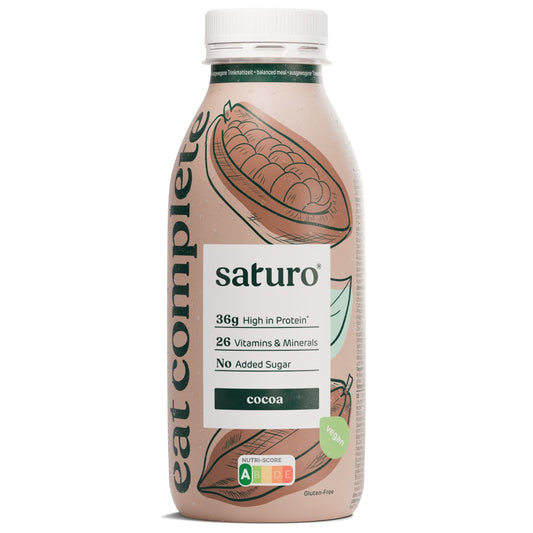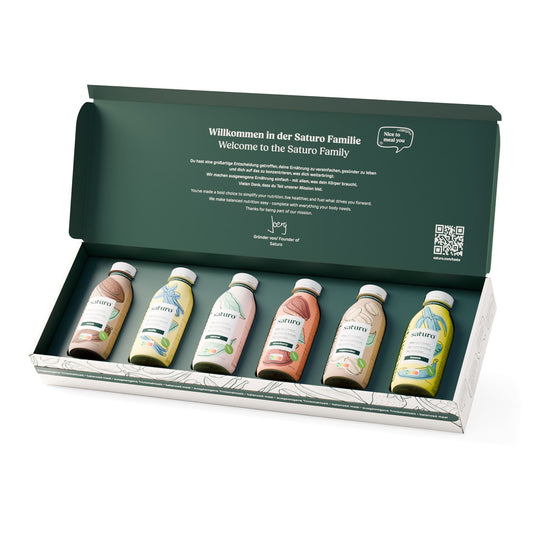Contents
1
What is vitamin B5 deficiency and how much vitamin B5 do you need every day?
2
Pantothenic acid effect
3
Vitamin B5 deficiency symptoms
4
Causes of vitamin B5 deficiency
5
Vitamin B5 in food
Vegan vitamin B5 sources
Animal vitamin B5 sources
Drinking meals against vitamin B5 deficiency
Vegan vitamin B5 sources
| Vegan vitamin B5 sources | Vitamin B5 content per 100 g |
|---|---|
| 1. Shiitake mushrooms (dried) | 22 mg |
| 2. Sunflower seeds | 7 mg |
| 3. Spirulina (dried) | 4 mg |
| 4. Tomatoes (dried) | 2 mg |
| 5. Peanuts | 2 mg |
| 6. Mushrooms (cooked) | 2 mg |
| 7. Hafer bran | 1 mg |
| 8. Avocado | 1 mg |
| 9. Cashews | 1 mg |
| 10. Chicorée (raw) | 1 mg |
Animal vitamin B5 sources
| Animal vitamin B5 sources | Vitamin B5 content per 100 g |
|---|---|
| 1. Cattle liver (fried) | 7 mg |
| 2. Lamb liver (fried) | 6 mg |
| 3. Egg yolk (raw) | 3 mg |
| 4. Trout (cooked) | 2 mg |
| 5. Gans (fried) | 2 mg |
| 6. Blockwork cheese | 2 mg |
| 7. Salmon (cooked | 2 mg |
| 8. Chicken breast (cooked) | 2 mg |
| 9. Duck (fried) | 1 mg |
| 10. Thuna (cooked) | 1 mg |





